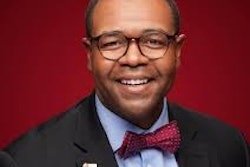Since the pandemic, there have been many news articles and TV reports about “The Great Resignation.” The stories have focused mainly on frontline hospital staff and workers in the hospitality industry. Educators are also included in the great resignation, as Kaitlyn Barton and Christine Dickason wrote in the April 29, 2022, Ms. Magazine article titled, "Teachers are heading for the door—and they’re not coming back." Many think the great teacher resignation and shortage is just due to the stress of the pandemic. As a former college professor, I assure you, it’s a lot more complex than that.
In February 2022, the National Education Association released their latest survey that shows 55% of its members are thinking about resigning earlier than they had originally planned. Though COVID is being blamed for this exodus, as an educator that recently resigned from the university, I believe COVID simply provided many educators like me with the time we needed to reflect on our dead-end careers and mediocre salaries and make the appropriate pivot to better our and our families’ lives by changing careers. Dr. Kimberly Harden
Dr. Kimberly Harden
Like my colleagues, I was overworked and undervalued. That, I could deal with. But being underpaid on top of it was soul-crushing. The average communication and journalism professor earns less than $55k/year. Teachers are paid a lot less than other college graduates. Many teachers live at or just above poverty level and work multiple jobs to make ends meet. Some even receive public assistance such as Section 8 housing and SNAP benefits. Teacher salaries have largely remained unchanged for the last 30 years. Universities and colleges have increased administrator salaries claiming that they are the ones responsible for fundraising, endowments, student recruitment, and keeping the organization afloat. However, it is professors that keep students at the university. In 2019, administrators received a median pay bump of 2.73 percent, and in 2020 they received a median increase of 2.67 percent. By comparison, faculty members saw an average 1 percent increase in compensation, not adjusting for inflation -- the smallest year-over-year increase in faculty salaries since 1972.
There is a belief that administrators are the ones responsible for fundraising, endowments, student recruitment, and keeping the organization afloat. According to Princeton Review, “College administrators make recommendations about admissions; oversee the disbursement of university materials; plan curricula; oversee all budgets from payroll to maintenance of the physical plant; supervise personnel; keep track of university records (everything from student transcripts to library archives); and help students navigate the university bureaucracy for financial aid, housing, job placement, alumni development, and all the other services a college provides” (para 1).
Administrators fail to acknowledge that students are admitted, not only based on their grades, but also on the strength of the letter of recommendation from teachers and faculty members. College faculty are the ones that design and revise curricula. Faculty also help students navigate the red tape of college. Department secretaries keep track of records and budgets, yet they are paid less than faculty members.
Homeownership is out of reach for many educators and support staff. One reason I resigned and relocated was because, despite having excellent credit and appropriate savings, the loan officer literally laughed in my face when I applied for a home loan in Seattle. He said, “Despite your long work history as an educator, under no circumstance can I approve you for a home loan with that salary.” Not only was I embarrassed; I was also disheartened. This experience and having enough time to think and strategize during the pandemic led me to resign and focus on growing my business. My department chair said they had a similar experience and they and their spouse are also thinking about resigning.
Universities and colleges don’t value education, they value the money that comes to the institution. A great example are the large endowments that came in 2021 but didn’t benefit students.
Higher ed institutions are embedded in a landscape of competition, where education is a commodity rather than a public good. The result is a race to the bottom, just like in any other industry, with universities pressured to minimize costs and maximize revenues from tuition and other sources. Workers should take back their power and make use of strikes and related tactics. The big picture goal is higher salaries for educators. To put it in the “so that” context, faculty can and should organize a workplace stoppage/strike so that class schedules are disrupted, so that the university community takes note of faculty grievances, so that the university administrators agree to negotiate with faculty, so that both parties can work in good faith to raise wages...etc., etc. For a single university, the result would involve mostly impact changes (higher wages for faulty), but also some internal leverage changes (the organized faculty or faculty union's use of a strike acts as a credible threat that work stoppages can happen again in the future, which gives faculty more power in the institution). To the extent that one university's experience sparks an organizing or strike movement -- like what we're watching happen at Starbucks stores across the US—it's possible that influence and larger scale leverage changes could follow.
I resigned from teaching at the end of winter term. I am now solely dedicated to a profession that allows me to teach in a different way and puts me at a financial advantage instead of the hamster wheel of disadvantage. Very few people are willing to choose a career with an unattractive pay and little to no support from administrators. Teachers and faculty in higher ed are realizing that they need and deserve better. They’re essentially saying, “We out!” The existing teacher shortage negatively impacts, not only students, but the entire education system. Increasing teacher salary and making it more equitable will make it a more desirable career choice for current and future educators.
Dr. Kimberly Harden is the founder and CEO of Harden Consulting Group, LLC,. She is a former professor of communication studies.


















